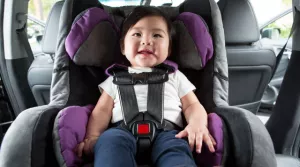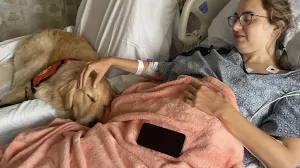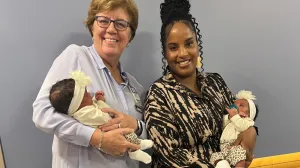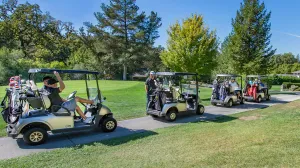Cars and kids can be a dangerous combination. Pediatric Trauma Nurse Coordinator, Leslie Rideout, PhD, FNP, reminds us that there is so much we can do to ensure the safety of children in and around motor vehicles. “We all have many competing demands that cause distraction during the course of our day,” Rideout says. “It is important to know the safety laws and regulations in order to keep children safe.”
Ensure proper car seat installation
Project Specialist at Tufts Medical Center, Aashka Shah, stresses the importance of properly installing car seats. “Correctly used child safety seats reduce the risk of death by 71%,” explains Shah. Even when a parent feels comfortable with installation, a checkup should be done for every new seat.
Parents can get in touch with their local police or fire department to make sure the car seat (rear-facing, convertible, or booster) is installed correctly. There is no charge and it only takes a few minutes.
When a car seat is compromised
Emergency personnel take no chances when seat has been compromised, and you shouldn’t either. Once a car seat has been involved in a car accident, it should be removed and replaced.
Expired car seats are also considered compromised. Safety engineers and manufacturers of car seats learn more each year – if you have an older model then it may not be the safest option. Additionally, materials may deteriorate when a car seat is left in a hot vehicle sitting in the sun, year after year.
For families of our patients, Tufts Medical Center offers a program to replace these car seats and provide car seats for families of our patients who may be unable to purchase one. A nurse, social worker, or ER personnel can arrange for the patient to receive a car seat.
Stick to it
In case of a crash, a simple eye-catching sticker could make a big difference in the physical and emotional wellbeing of a child. KPTI created the Car Seat Sticker program to identify a child and provide crucial contact and medical information to emergency personnel if a parent is unable to do so. The bright yellow sticker attaches to a car seat in a visible area.
These free stickers are often provided to various social service organizations and schools. They can also be obtained for distribution to families in your community by calling KPTI at 617.636.6381.
School daze
Some of the biggest safety hazards to children happen when they are outside of the vehicle. According to the Centers for Disease Control, nearly 10% of motor vehicle-related deaths to children do not happen in traffic. Distracted driving and speeding is an unfortunate reality that can compromise the safety of your child, with the start and end of a school day being the most dangerous time.
Many accidents occur in places like driveways and parking lots where a driver cannot see kids. Parents should always check in and around the car before moving and never depend on those vehicle cameras to spot a child.
The hang up
A teenager getting his or her license is a nerve-wracking time for parent, and the thought of a cell phone distracting teens while they drive just adds to the anxiety. That’s why Massachusetts law forbids teen drivers from using cell phones – no talking, no texting. But, it doesn’t curb the temptation.
Thankfully, there are more than a half dozen apps designed to allow a parent to control what can be done with a cell phone while their teen is in the driver’s seat. Some of those apps can block calls and messages or even disable the device. Learn about some of these apps at uknowkids.com.
Model behavior
Just like surgeons and nurses at a hospital, Rideout suggest parents adopt a mental or written checklist to go through every day. They say it should include certain risk factors such as checking in and around the car, making sure a child is buckled in securely and never left inside a vehicle.
Above all, they say, be a role model. Buckle up. Put down the phone. Don’t let anyone or anything become a distraction. “Families try the best they can,” says Rideout. “They want their children to be safe. So, we support what they already do by enhancing it with what we know and providing these resources.”



